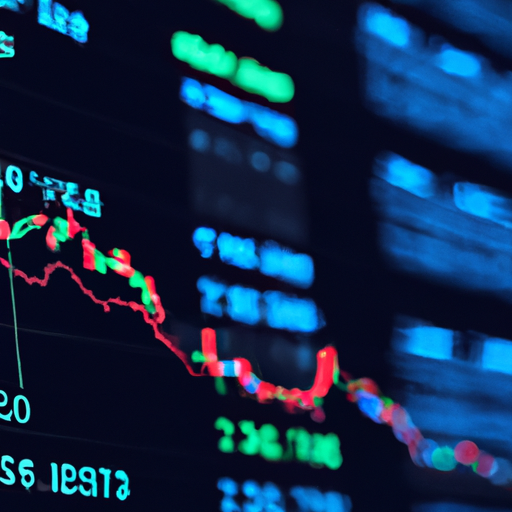Trade And Trading: The Lifeblood Of Modern Finance
Trade and trading are the cornerstones of our global economy. From buying stocks on the best stock apps to using advanced trading systems, the avenues for engaging in trade have evolved dramatically over the years.
Today, I’ll take you through a fascinating journey exploring what trade and trading entail, how they operate, and some essential aspects you need to know if you wish to dabble in this exciting world.
Whether you’re an aspiring trader or an experienced market participant, this comprehensive guide will shed light on what it takes to succeed in trade and trading.
The Basics Of Trade And Trading
Before diving into complexities, let’s start with the basics. Trade is simply the exchange of goods and services between parties. This could be as simple as bartering food items or as complex as multinational corporations exchanging commodities worth billions.
On the other hand, trading refers specifically to the process of buying and selling financial instruments like stocks, bonds, forex, or cryptocurrencies. Modern-day traders rely heavily on platforms like Interactive Brokers or various forex trading platforms to make their trades.
Types Of Trading
Trading can be broadly categorized into different types depending on what is being traded:
– Stock Trading: Buying and selling shares of companies.
– Forex Trading: Exchanging one currency for another.
– Options Trading: Contracts that give you the right but not the obligation to buy or sell an asset at a predetermined price.
– Cryptocurrency Trading: Buying and selling digital currencies like Bitcoin.
Each type has its own set of rules, risks, and rewards. Understanding these distinctions helps form a solid foundation for anyone interested in jumping into trading.
The Evolution Of Trade And Trading Systems
The concept of trade dates back thousands of years when people first started exchanging goods as a means of survival. Over time, this evolved into organized marketplaces where traders could exchange not just physical goods but also financial instruments.
Technological Impact On Trading Systems
One significant shift came with technological advancements that introduced computerized trading systems. These systems have revolutionized how we engage in trade:
– High-Frequency Trading (HFT): Uses powerful computers to execute thousands of trades per second.
– Automated Trading Systems: These systems use algorithms to make trades based on pre-set conditions.
Such innovations have made trading more efficient but also more complex. Platforms like Interactive Brokers provide traders with sophisticated tools that help them navigate these complexities efficiently.
Risk Management In Trade And Trading
No discussion about trade and trading would be complete without addressing risk management. Even seasoned traders face risks that could potentially wipe out their investments if not managed properly.
Key Risk Management Strategies
Here are some crucial strategies that can help mitigate risks:
– Diversification: Don’t put all your eggs in one basket; spread your investments across various assets.
– Stop-Loss Orders: Automatically sell an asset when it reaches a specific price point.
– Hedging: Use financial instruments like options or futures contracts to offset potential losses.
Risk management isn’t just about avoiding losses; it’s about making informed decisions that balance reward against risk effectively.
Effective Trading Strategies To Consider
To succeed in trade and trading, having effective strategies is paramount. The best stock apps today allow users to implement several advanced strategies effortlessly.
Popular Trading Strategies
Some popular strategies include:
– Day Trading: Buy and sell within a single day.
– Swing Trading: Hold positions for several days to benefit from expected price moves.
– Scalping: Make numerous small trades throughout the day aiming for small profit margins from each trade.
Each strategy requires different skill sets and market conditions to be effective. It’s crucial to find one that aligns with your goals and risk tolerance levels.
The Role Of Forex Trading Platforms
Forex trading platforms serve as gateways for currency exchange markets where participants can buy or sell currencies at will. Platforms like MetaTrader 4/5 offer robust functionalities suited for both novice traders looking for simplicity and experts seeking advanced features.
These platforms usually come equipped with analytical tools helping users make more informed decisions by providing real-time market data analysis capabilities among other features.
Choosing The Right Platform For You
Selecting a forex platform depends largely on individual needs – here are factors worth considering before making your choice:
1) Compatibility – Ensure compatibility between software applications used & computer hardware configuration
2) User interface – Intuitive design ensuring ease-of-use
3) Customer Support – Prompt resolution support
Platforms offering demo accounts enable beginners practice alongside gaining confidence without risking actual capital investments initially thereby aiding making informed selection choices overall
In conclusion,
As technology continues advancing rapidly shaping future trends within industry space ultimately goal remains same ensuring maximization returns balance minimizing associated inherent risks effectively whilst leveraging available technological advancements optimally.
So embark today exciting journey armed knowledge insights shared here confident poised achieve success endeavors ahead! Happy journey!

